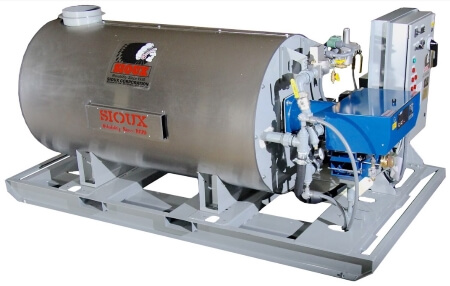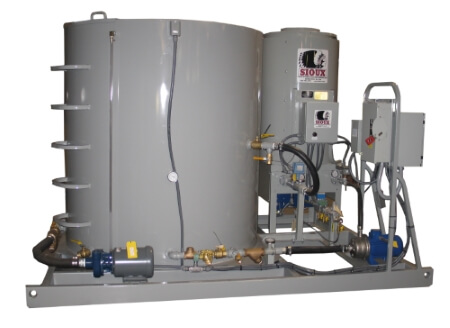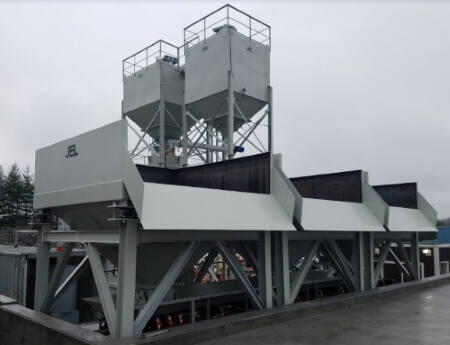Hot Water Heaters & Heating Systems For Concrete Plants
We get a lot of questions about hot water and concrete batch plants. While we don’t actually sell water heaters we have partnered with our dealer FESCO Direct for our customer’s hot water needs. This doesn’t make me an expert on water heating, but as a manufacturer of concrete plants and having been in, out and around concrete plants all around the world I’m confident in my qualification to address some of the most basic questions in regard to hot water use in concrete plants.

The most important questions to answer:
- How much water are you using per batch of concrete?
- How many batches of concrete are you making each hour?
- How many hours consecutively are you making concrete vs. not making concrete?
- How much rise in temperature do you need; meaning how many degrees of increase do you need from incoming cold water to outgoing hot water?
You may be asked a few more questions, but being prepared with answers to these questions will help someone knowledgeable in sizing water heating systems for concrete plants help you size a water heater and tank that will meet your needs.

For new and used water heating systems - contact FESCO Direct
FESCO Direct is our partner in sourcing and distributing water heating equipment for concrete batching plants. Sioux Corporation is our preferred batch plant water heater equipment manufacturer.
The most common question I get regarding water heating for concrete plants
“Is there a special water heater?” The answer is yes and no. Yes, the water heater used for heating water at a concrete batch plant is a special heavy duty industrial water heater or boiler that is intended for the rugged, dusty and dirty environments found in a concrete plant, but typically you will find that manufacturers span industry meaning some water heaters may be made for the concrete industry, food industry, and other industries requiring large amounts of hot water.

What makes water systems for concrete plants truly special is how they are sized and paired with storage tanks. In some cases, you may find a water system where no storage tank or only a very small storage tank is required, but more frequently you will find the use of a storage tank may allow you to save money overall by getting a surplus on your day’s needs and enabling you to use a smaller heater.
This is why working with a concrete industry professional is so important
People in our industry working on concrete plants are best suited to help you put the system together to suit your needs satisfying your water heating needs using a budget friendly design.


